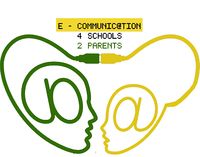From Future Worlds Center Wiki
Jump to navigationJump to search
|
|
|
|
The content of this page is displayed in standardized format to
- serve as quick reference; and
- facilitate its use during preparation of new applications. Do not change the content of this page without consulting with the project coordinator. For encyclopedic details about the project, please refer to its main page.
|
|
|
|
| Formal Project Description
|

|
|
|
Overall objective(s)
The main objectives to which the action/project will contribute:
- To improve the quality and to increase the volume of mobility throughout Europe of people involved in initial vocational education and training and in continuing training, so as to increase placements in enterprises to at least 80.000 per year by the end of the LLP (LEO-OpObj-1)
- o improve the quality and to increase the volume of co-operation between institutions or organisations providing learning opportunities, enterprises, social partners and other relevant bodies throughout Europe (LEO-OpObj-2)
- To facilitate the development of innovative practices in the field of vocational education and training other than at tertiary level, and their transfer, including from one participating country to others (LEO-OpObj-3)
- To support the development of innovative ICT-based content, services, pedagogies and practice for lifelong learning (LEO-OpObj-6)
- With this research project we want to examine the possibilities but also the risks of modern communication resources such as e-mail, Skype, school Internet sites( with protected areas for parents), schoolblogs and electronic learning environments (with access for parents). Also popular social network sites offer possible interesting perspectives to communicate with parents: Facebook, Netlog, Twitter, MSN, Skype, Picasa/Flickr for sharing photograph, etc.
- On the one hand we want to make an inventory of goods practices, particularly how schools at present use ICT in their communication with parents with accent on the advantages and dangers that appear We want also to examine what the conditions are for a good electronic communication with parents and to what extent teachers and parents are enthusiastic with or can be made enthusiastic concerning these `other communication ways’ . Moreover, if it is possible we want to encourage on experimental base some schools to try out these modern communication resources with parents to invest the improvement of effective communication.
- All these investments must result in a guide which can help school and organizations to explore new communication ways in communicating with parents : “e-communIC@Tlas”. It is important to remark that we don’t want to exclude or ban face to face contacts. We want to examine how new technology can improve contacts between parents and schools .
Approach
Step 1: Literature search: By means of a literature search we will explore in each country examples of the commitment of the Internet tools in schools and social services agencies.
Step 2: Online inquiry: We will organize a quantitative consultation to the current use of the modern Internet communication tools within a group of schools and training organisations.
Step 3: Good practice analysis: Good practices will examined in detail and will be explored from a advantages/ disadvantages analysis. ( SWOT-analysis).
Step 4 : Development of a “e-communiC@Tlas” this means a handbook for schools and organizations who want to use the internettools as a way of communicating with parents.
Step 5: Dissemination: We will publish all these information with ‘good practices’ on a website f.e. ‘www.myschoolonline.eu’ and educational & social magazines, CD.
Step 6: Set up of local training for teachers and social educators to learn them how e-communication works.
|